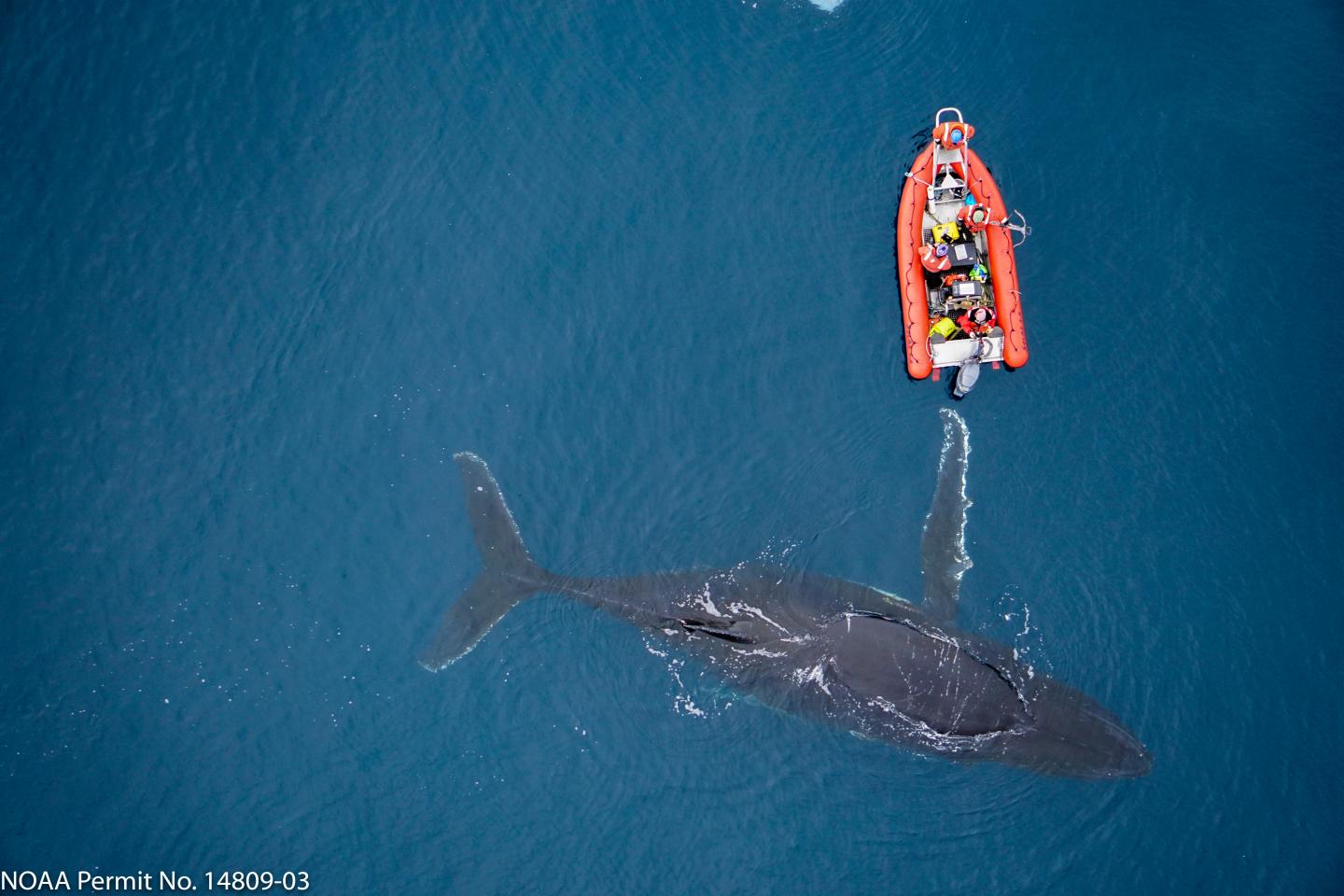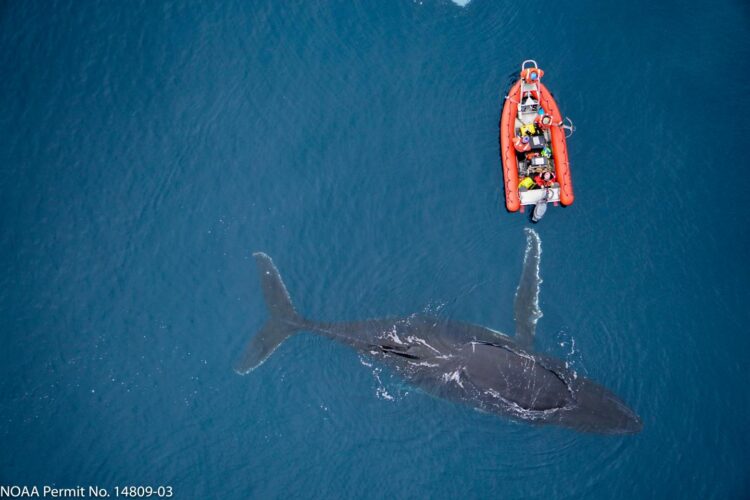
Credit: Duke Marine Robotics and Remote Sensing Lab
The ocean’s mammals are at a crucial crossroads – with some at risk of extinction and others showing signs of recovery, researchers say.
In a detailed review of the status of the world’s 126 marine mammal species – which include whales, dolphins, seals, sea lions, manatees, dugongs, sea otters and polar bears – scientists found that accidental capture by fisheries (bycatch), climate change and pollution are among the key drivers of decline.
A quarter of these species are now classified as being at risk of extinction (vulnerable, endangered or critically endangered on the IUCN Red List), with the near-extinct vaquita porpoise and the critically endangered North Atlantic right whale among those in greatest danger.
Conservation efforts have enabled recoveries among other species, including the northern elephant seal, humpback whale and Guadalupe fur seal.
The international research team – led by the University of Exeter and including scientists from more than 30 institutions in 13 countries – highlight conservation measures and research techniques that could protect marine mammals into the future.
“We have reached a critical point in terms of marine mammal conservation,” said lead author Dr Sarah Nelms, of the Centre for Ecology and Conservation on Exeter’s Penryn Campus in Cornwall.
“Very few marine mammal species have been driven to extinction in modern times, but human activities are putting many of them under increasing pressure.
“Our paper examines a range of conservation measures – including Marine Protected Areas (MPAs), bycatch reduction methods and community engagement – as well as highlighting some of the species that are in urgent need of focus.”
The researchers say 21% of marine mammal species are listed as “data deficient” in the IUCN Red List – meaning not enough is known to assess their conservation status.
This lack of knowledge makes it difficult to identify which species are in need of protection and what actions should be taken to save them.
Professor Brendan Godley, who leads the Exeter Marine research group, said: “To continue conservation successes and reverse the downward trend in at-risk species, we need to understand the threats they face and the conservation measures that could help.
“Technology such as drone and satellite imaging, electronic tags and molecular techniques are among the tools that will help us do this.
“Additionally, sharing best practice will empower us – and this is why we are so proud to be part of such a large and international group for this project.”
###
The paper, published in the journal Endangered Species Research, is entitled: “Marine mammal conservation: Over the horizon.”
Media Contact
Alex Morrison
[email protected]
Related Journal Article
http://dx.





